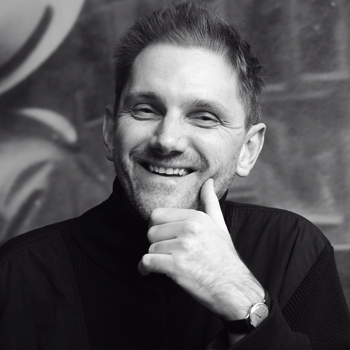|
Bitna karakteristika festivala jeste praksa festivalske turneje, odnosno, programa projekcija u drugim hrvatskim gradovima, u suradnji s lokalnim nevladinim organizacijama koje na taj način aktivno sudjeluju u prezentaciji Festivalskog programa promovirajući ljudska prava u svojim sredinama. Veza normativne društvene i estetske teorije je glavni fokus njegovog istraživanja. https://pescanik.net/intervju-13/ https://slobodnadalmacija.hr/kultura/petar-milat-direktor-human-rights-film-festivala-glavni-problem-je-sveo https://www.tportal.hr/kultura/clanak/domaca-se-kinematografija-sklonila-u-zaklon-i-tek-trebamo-vidjeti-du https://www.dokumentarni.net/2018/11/28/petar-milat-nepokorenom-zeljom-protiv-ne-moze/ https://www.rts.rs/page/radio/sr/story/24/radio-beograd-2/4331379/svetlana-slapsak-i-petar-milat-o-esejima-dub https://www.portalnovosti.com/petar-milat-nas-festival-je-vazan-i-kao-mjesto-intelektualnih-susreta http://www.seecult.org/tag/petar-milat
Petar Milat is a former philosopher and main program coordinator at the Multimedia Institute / MaMa (Zagreb, Croatia), in charge of publishing, music and film programs of the Institute. Since 2008, he has been the director of the Human Rights Film Festival. The Human Rights Film Festival is a non-profit project of two prominent independent cultural organizations - the Multimedia Institute and the Association for the Development of Culture "URK", launched in 2002 with the aim of improving the visibility of various human rights topics in the film medium. Since the first, revival edition in the club premises of MaMa and Močvara, HRFF has continuously built the profile of the film quality festival on the big screen, while remaining recognizable for its programs that promote openness, multiculturalism, tolerance, freedom of choice. An important feature of the festival is the practice of the festival tour, ie screening programs in other Croatian cities, in cooperation with local NGOs that thus actively participate in the presentation of the Festival program promoting human rights in their communities. The connection between normative social and aesthetic theory is the main focus of his research.
|

ODAKLE ZOVEM, PODGORICA 2023
Lokacija
Knjižara "Karver", Banja
Cvijetin brijeg bb, Obala Ribnice, Podgorica
Kontakt
Telefon: +381 20 602 625
E-mail: karver@t-com.meRadno vrijeme
Ponedjeljak - Subota: 9:00 - 16:00
Nedjeljom ne radi

 Petar Milat
Petar Milat